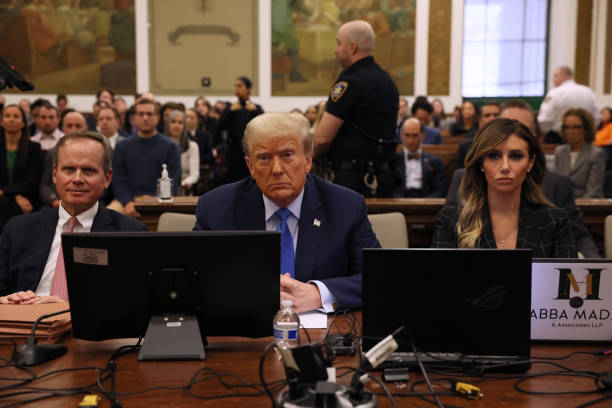NEWS
Is Trump Going To Jail? Your Questions About Trump’s Trial Answered
When CNN asked for your questions about former President Donald Trump’s upcoming first criminal trial – for his role in hush money payments made before the 2016 election to women who said they had affairs with him – we got a flood of input.
Not all of it was fit to print, is trump going to jail? But there were a lot of legitimate and very thoughtful questions. Keep reading for a representative sampling, which helps explain the case. Most of the questions come directly from reader submissions, but for others, I’ve simplified multiple submissions into one question. Trump, by the way, denies having the affairs and has pleaded not guilty in the case.
Is Trump going to jail Or Not?
I went to CNN’s chief legal analyst Laura Coates for the single, most-asked question, which was asked in many ways but boiled down to: will trump go to jail?
Coates: If Trump were to be found guilty of all of the counts, he could theoretically be facing more than a decade in prison. The 34 felony counts are classified as Class E felonies in New York, the lowest level felony in the state.
Another possibility is that the judge could forgo prison entirely and place him on probation with the possibility of incarceration looming over his head if he fails to abide by the conditions set by the judge. If the judge decides to incarcerate post-conviction, the Secret Service would become the elephant in the, well, cell. The unprecedented nature of incarcerating a former president would raise questions about how best to ensure equal treatment under the law and security for a former president.
If Trump were sent to prison, would he still have his presidential Secret Service protecting him in jail?
I reached out to the Secret Service to ask if they had planned for the potential that Trump could be imprisoned. Not surprisingly, I was told by a spokesman that this is “something we can not comment on at this time.” But note that as a matter of US law, former presidents and their spouses are afforded lifetime Secret Service protection, unless they decline it. Some more trump news today cnn.
Will the trial be televised?
No. While many states frequently broadcast trials, New York state civil rights law limits what is allowed. The judge, Juan Merchan, could in theory make an exception, but he did not allow cameras to broadcast trump legal news arraignment last year.
It is possible that photos and video inside the courtroom may be taken prior to proceedings, as occurred during his New York civil fraud trial.

Similarly, if or when his federal trials on charges of election interference and mishandling classified data occur, there are rules that likely bar the broadcast of those as well. His trial in Georgia on charges of election interference would be televised if it occurs.
Does Trump have to be in court every day?
Yes. The judicial process is built around the idea that defendants are there to answer charges, and New York law requires that a defendant be present at trial.
There are a few exceptions. Trump could ask to be excused and waive his right to be present, but the prosecution could object. Disorderly or disruptive defendants can also be removed from court during their trial.
Could he be president from prison?
This is a great and essentially unanswerable hypothetical. First, it assumes multiple things will occur: Trump would have to be convicted, sentenced, exhaust appeals, report to prison and win the election. That’s a very specific scenario thrust upon a very unpredictable set of circumstances and a short timeline. But here we go.
I talked to Frank Bowman, a law professor emeritus at the University of Missouri who is both an expert in criminal law and published a book on the impeachment process, for his thoughts on how to deal with a convict president. The Constitution, he said, theoretically allows a person to serve “even if he’s a convicted felon or even if he’s a convicted felon in the joint.”
Trump quotes, however, would get in the way of this hypothetical ever occurring. “This stuff takes a long time, and the appeals would drag out,” probably beyond Election Day and Inauguration Day, Bowman said.
It’s also possible Trump’s opponents, after a conviction, could try again to either impeach him or object to his presidency based on the 14th Amendment, although those avenues have been tried and failed previously.
If somehow Trump was convicted in this state case, Bowman imagined there could be some argument by which the Constitution’s Supremacy Clause – which prohibits states from interfering in the exercise of constitutional powers – could be utilized to keep Trump rally from state prison. But it would be a novel thing.
If, on the other hand, Trump was somehow convicted in one of his two federal trials and sentenced to federal prison, as president he could theoretically try to pardon himself or order the Bureau of Prisons to do something like confine him at the White House. Again, this is uncharted territory that is unanticipated in US law and,Bowman argues,unlikely to occur.